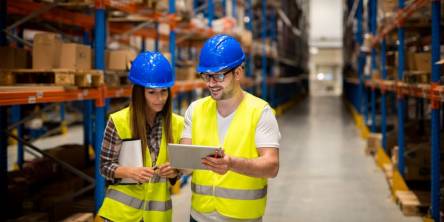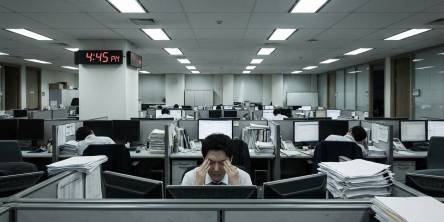Foundation of Productivity: Crafting a Clean Office Space

The cornerstone of a vibrant and productive office environment begins with its cleanliness. A well-maintained space not only uplifts the spirits of those working in it but also plays a crucial role in promoting health and efficiency. In this context, the expertise of Professional Office Cleaners becomes invaluable.
Professional cleaners are not just about maintaining appearances; they are integral to creating a workspace that fosters well-being and productivity. Their meticulous approach to sanitizing surfaces, optimizing workspace hygiene, and ensuring clean air quality makes a substantial difference.
- Health Benefits: A clean office reduces the spread of germs and illness, thereby decreasing employee sick days and boosting overall health.
- Mental Clarity: A clutter-free and tidy environment is known to reduce stress and enhance focus among employees.
- First Impressions: Clean office spaces leave a lasting impression on clients and visitors, reflecting a company’s attention to detail and care for its staff and clients.
The role of professional office cleaners goes beyond conventional cleaning; they are pivotal in maintaining a workplace that is not only clean but also a haven for health and productivity. This guide aims to shed light on maximizing office cleanliness, underlining the transformative effects of professional cleaning on an office environment.
Elevating Workspace _Wellness: The Art of Desk Hygiene
Maintaining cleanliness in personal workspaces is a vital aspect of overall office hygiene. Professional office cleaners emphasize the importance of individual responsibility in keeping these areas tidy and sanitary. Here are some key tips to ensure your desk and personal items remain clean:
- Regular Wipe-Downs: Use disinfecting wipes to clean your desk, keyboard, mouse, and phone. This is especially important in shared spaces.
- Declutter Regularly: A cluttered desk can harbor more dust and make cleaning more challenging. Regularly organize and dispose of unnecessary items.
- Personal Item Care: Keep personal items like coffee mugs, water bottles, and spectacles clean and sanitized.
- Mindful Eating: If eating at your desk, be cautious of crumbs and spills. Clean up immediately after meals to avoid attracting pests.
- Sanitizing Handhelds: Regularly clean your cell phone, tablets, and any other frequently used handheld devices.
Implementing these practices, as recommended by professional cleaners, not only contributes to your personal health but also aids in maintaining a cleaner, more hygienic office environment for everyone.
Harmonizing Hygiene: The Shared Space Cleanliness Code
In the collaborative world of office life, communal areas like kitchens and meeting rooms are hubs of activity, necessitating a collective commitment to cleanliness. Professional office cleaners offer invaluable advice on maintaining these shared spaces.
- Kitchen Courtesy: Kitchens should be left as clean, or cleaner, than they were found. This includes wiping down counters, properly storing food, and washing dishes immediately after use.
- Meeting Room Maintenance: After meetings, ensure that chairs are tucked in, trash is disposed of, and any used whiteboards are cleaned.
- Respect for Resources: Shared items like printers, coffee machines, or water coolers should be regularly wiped down, especially high-touch areas.
- Waste Management: Encourage the correct use of recycling bins and trash disposal, reducing clutter and promoting environmental responsibility.
- Regular Professional Cleaning: Alongside individual efforts, professional cleaners play a crucial role in deep cleaning these areas, ensuring a higher standard of hygiene and cleanliness.
These guidelines, as recommended by professional cleaners, foster a culture of mutual respect and collective responsibility for cleanliness, ensuring that shared spaces remain welcoming and hygienic for all.
Germs at Bay: The Strategic Role of Sanitization Stations
In today's health-conscious office environment, the strategic placement and use of sanitization stations have become integral. Professional office cleaners not only focus on traditional cleaning but also emphasize the importance of effective sanitization practices.
- Strategic Placement: Sanitization stations are ideally located at key points such as office entrances, near elevators, in break rooms, and other high-traffic areas.
- Essential Supplies: These stations are equipped with hand sanitizers, disinfectant wipes, and sometimes even masks and gloves to ensure employees can easily access hygiene essentials.
- Routine Refills and Maintenance: Professional cleaners ensure that these stations are regularly refilled and maintained, keeping them fully functional and accessible.
- Educating Staff: Part of their role includes educating office staff on the importance of using these stations, especially before and after using communal areas.
- Integration with Overall Cleaning: Sanitization stations complement the broader cleaning regimen, offering an additional layer of protection against germs and contributing to a healthier workplace.
The implementation and maintenance of sanitization stations by professional cleaners symbolize a proactive approach in creating a safe and hygienic office environment, reflecting a commitment to employee health and well-being.
Paving the Path to Cleanliness: The Art of Floor Care
The cleanliness of office floors, whether carpeted or hard surfaces, plays a pivotal role in the overall perception and hygiene of the workspace. Professional office cleaners have honed specific techniques to keep these walkways spotless.
- Routine Vacuuming: For carpeted areas, regular vacuuming is essential to remove dirt and dust. High-traffic zones may require daily attention.
- Spot Cleaning: Immediate attention to spills on carpets prevents stains from setting in. Professional cleaners often use specialized products tailored to the carpet's material.
- Deep Cleaning Carpets: Periodic deep cleaning, often involving steam cleaning or shampooing, is crucial for maintaining the carpet’s appearance and longevity.
- Hard Surface Care: For hard floors, sweeping followed by mopping with an appropriate cleaner keeps the surface shining and hygienic.
- Specialized Equipment: Professional cleaners use industrial-grade machines for thorough cleaning and efficient drying of floors.
By incorporating these maintenance techniques, professional cleaners ensure that office floors are not just visually appealing but also contribute to a healthier and more pleasant working environment.
Sanitary Sanctuaries: Mastering Restroom Cleanliness
The cleanliness of office restrooms is not just a matter of aesthetics; it's a crucial aspect of workplace health and hygiene. Professional office cleaners understand the importance of maintaining these spaces and employ specialized approaches to ensure they are thoroughly sanitized.
- Frequent Cleaning Schedules: High-use restrooms require multiple cleanings per day to maintain hygiene standards.
- Deep Cleaning Practices: Beyond surface cleaning, professionals focus on deep cleaning practices that target bacteria and germs, especially in high-touch areas like faucets, door handles, and toilet flush levers.
- Disinfectant Use: The choice and proper use of disinfectants are critical in effectively sanitizing restroom surfaces.
- Restocking Essentials: Ensuring a regular supply of soap, paper towels, and toilet paper is part of the routine to promote hand hygiene.
- Air Quality and Odor Control: Use of air fresheners and ensuring proper ventilation keeps the restroom environment pleasant and odor-free.
Professional cleaners play a key role in upholding these restroom routines, ensuring that these facilities are not just clean but also contribute to the overall health and comfort of office employees.
The Breath of Productivity: Enhancing Office Air Quality
In the pursuit of a healthier workplace, the quality of the air we breathe holds paramount importance. Professional office cleaners play a critical role in ensuring the air in office environments remains clean and conducive to health and productivity.
- Regular Dusting and Vacuuming: Reducing dust accumulation is essential. Professional cleaners use HEPA-filter-equipped vacuums to capture fine particles, significantly improving air quality.
- Proper Ventilation: Ensuring that offices are well-ventilated is a key aspect. Cleaners often recommend keeping air vents unblocked and regularly cleaned.
- Use of Air Purifiers: In spaces with limited ventilation, professionals might suggest the use of air purifiers to filter out pollutants and allergens.
- Control of Humidity Levels: Maintaining optimal humidity prevents the growth of mold and mildew, which can degrade air quality.
- Eco-friendly Cleaning Products: Using green cleaning products reduces the presence of airborne chemicals, contributing to healthier indoor air.
By incorporating these practices, professional office cleaners not only clean surfaces but also play a vital role in maintaining the quality of the air. A commitment to good air quality in the office is a commitment to the well-being and efficiency of everyone in the workspace.
Digital Cleanliness: The Art of Tech Hygiene
In our technology-driven office environments, the cleanliness of electronic devices is often overlooked, yet it's crucial for both functionality and health. Professional office cleaners advocate for regular cleaning and sanitization of these devices to enhance workplace hygiene.
- Regular Dusting: Use microfiber cloths to gently remove dust from screens, keyboards, and other tech surfaces. This prevents buildup and potential overheating issues.
- Disinfecting Key Touchpoints: Regularly wipe down high-touch areas like keyboards, mouse devices, and phone receivers with disinfectant wipes, especially during flu season.
- Screen Care: Use alcohol-free cleaners specially designed for electronic screens to avoid damage.
- Cable Management: Regularly dust and organize cables and ports to prevent dust accumulation and ensure good airflow.
- Professional Recommendations: Office cleaners often suggest a weekly routine for tech hygiene, ensuring that devices are not just physically clean but also free from harmful germs.
Incorporating these tech hygiene practices into regular office cleaning routines ensures a healthier, more efficient workspace, keeping vital technology in top condition.
Embracing Earth-Friendly Office Cleanliness
The shift towards sustainability has deeply influenced office cleaning practices. Professional office cleaners are increasingly adopting eco-friendly methods, not only to clean more effectively but also to reduce environmental impact.
- Eco-Friendly Cleaning Agents: Professionals are turning to green cleaning products made from natural, non-toxic ingredients. These agents are equally effective but much gentler on the environment.
- Reduced Chemical Use: Minimizing the use of harsh chemicals not only improves air quality but also lessens water pollution.
- Microfiber Cloths and Mops: These tools are preferred for their efficiency in trapping dirt and reducing the need for chemical cleaners.
- Conscious Water Usage: Emphasizing techniques that use less water, professional cleaners contribute to water conservation efforts.
- Recycling and Waste Reduction: Implementing recycling programs and reducing waste in cleaning processes are key components of green cleaning practices.
By incorporating these green cleaning methods, professional office cleaners play a significant role in promoting a healthier, more sustainable office environment. These practices demonstrate a commitment to the well-being of office staff and the planet alike.
Sealing the Cleanliness Commitment: Office Hygiene Best Practices
As we conclude our guide to maximizing office cleanliness, it's essential to reinforce the best practices that ensure a consistently hygienic workplace. The role of professional office cleaners is pivotal in upholding these standards, offering expertise and diligence that go beyond routine cleaning.
- Regular Deep Cleaning: Establishing a regular schedule for professional deep cleaning maintains high hygiene standards and addresses areas often missed in daily cleaning routines.
- Individual Responsibility: Encouraging employees to maintain their personal spaces and be mindful of communal areas contributes significantly to overall office cleanliness.
- Adapting to Changing Needs: Being flexible and responsive to increased cleaning demands during flu seasons or outbreaks is crucial.
- Sustainable Practices: Incorporating eco-friendly cleaning methods and products reflects a commitment to environmental responsibility.
- Continuous Education: Keeping staff informed about hygiene best practices and the importance of a clean workspace is essential for a collective effort to maintain office cleanliness.
The ongoing role of professional cleaners in sustaining a clean, healthy office environment cannot be overstated. Their expertise, coupled with regular maintenance and responsible office habits, creates a workspace that not only looks clean but also promotes well-being and productivity. Remember, a clean office is a collective achievement and a shared responsibility.
Similar Articles
Running a business that spans across different cities is a dream for many. However, the reality of managing stock in multiple places can quickly become a nightmare
Explore jira vs trello to find the right project management tool for startups focused on collaboration productivity and scalable growth.
Customers tell you how they feel. Their actions show what they’ll do next. Most businesses track both, but rarely connect them in a way that clearly links to revenue.
When you're looking at businesses for sale, or thinking about selling your own, it can feel like a big undertaking. That's where experienced business brokers come in.
Feeling drained at work isn’t just about long hours. Learn how workspace design quietly causes fatigue and what actually helps reduce it.
Good leadership is a feature of such a person that they think of the whole team and not only themselves. Leadership is your behaviour, not your status by title.
In the world of civil construction, a small mistake can have a big impact. Whether it’s delays, budget overruns, or safety issues, the costs of poor staffing are often overlooked until it’s too late.
Learn how to choose winning products for your dropshipping website with smart research, trend analysis, and testing tips for better profits.
In today’s fast-growing lighting industry, LED strip lights have become one of the most popular solutions for modern lighting design.









